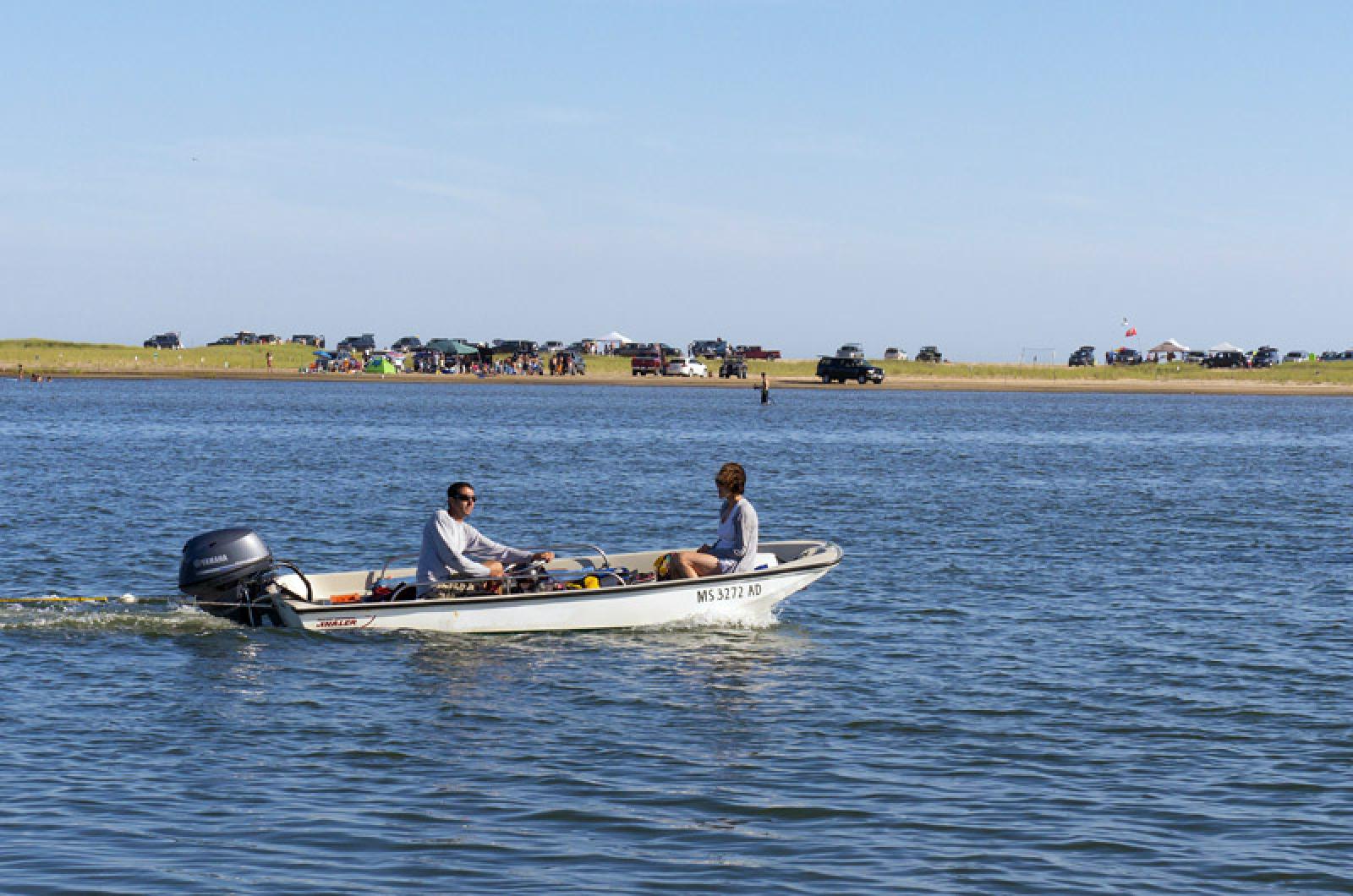Katama Bay oyster farms have been closed for a week because of confirmed cases of Vibrio parahaemolyticus illness tied to oysters from the area, state officials announced Wednesday.
The Massachusetts Department of Public Health and the Massachusetts Department of Fish and Game, Division of Marine Fisheries said Katama Bay oyster beds said the precautionary closure comes after three confirmed cases of vibrio linked to the consumption of raw oysters from Katama, and because of environmental conditions conducive to the growth of Vibrio.
The precautionary closure is the first in Massachusetts this year, according to a press release from DPH and DMF, and was effective Wednesday, August 26. Commercial harvesting and possession of shellfish from Katama Bay is prohibited for seven days.
There are 12 active independent oyster farming operations on Katama Bay.
The decision to issue a precautionary closure was made in response to warming waters in Katama Bay, anticipated high air temperatures in the forecast, and the identification of a third confirmed case of Vibrio tied to the area, the press release said.
Should more cases be confirmed, state officials said, an extended closure could take place.
Vibrio, also known as Vp, is a bacterial pathogen that naturally occurs in warmer coastal waters. Consuming raw oyster with the bacteria can cause gastrointestinal illness, often with abdominal cramping, nausea, vomiting, fever, and chills. Severe illness is rare and most likely to occur in people with weakened immune systems.
In each of the three reported cases tied to Katama Bay, the individuals have recovered, the state said.
Officials have noted an increase in Vibrio cases around the state in recent years, and new Vibrio control measures were put in place in 2013. Katama Bay oyster farms were closed for about three and a half weeks in September 2013 and one week in September 2014 because of reported cases of Vibrio. The state said current water temperatures in Katama Bay are consistent with the conditions that led to Vibrio illnesses in the past two years.







Comments (1)
Comments
Comment policy »